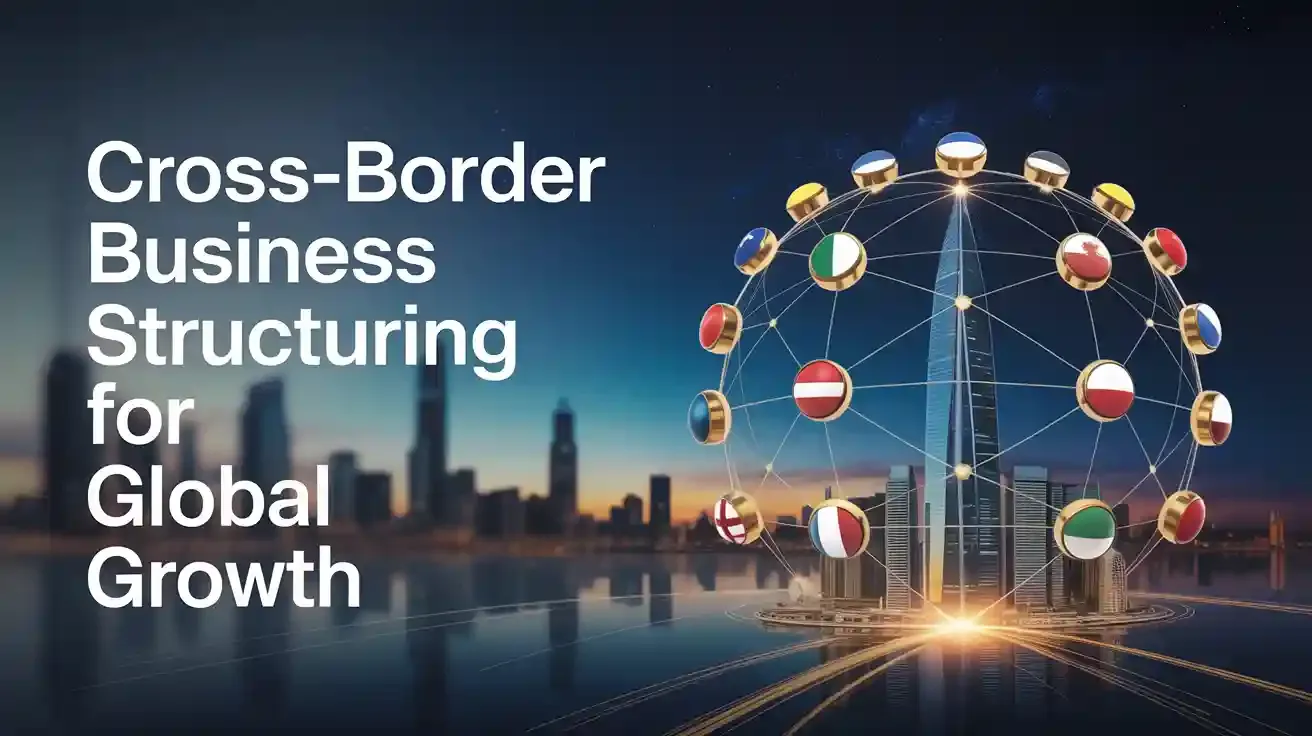Over the years, I’ve had the opportunity to work closely with businesses at every stage of their journey enterprises navigating expansion, startups chasing their first global client, and family businesses considering a second generation abroad. One insight that consistently holds true is this: the structure of your business determines the strength of your growth especially when that growth is international.
Today, Indian entrepreneurs are not thinking locally. They’re scaling startups to the UAE, setting up delivery hubs in Europe, and acquiring customers in the US. Global ambition is no longer the exception. It’s the new default.
But while the vision is global, the execution must be strategic. And this begins with one key question:
“Is your business structure helping you scale globally or silently slowing you down?”
This is where cross-border business structuring comes in.
A Business Structure Shouldn’t Be a Box -It Should Be a Bridge
Many business owners think of company structure as a compliance formality.
In reality, it’s one of the most powerful growth levers. The right choice between an LLP, Private Limited, LLC, or offshore holding entity can determine everything—from your tax burden and fundraising capability to your ease of operation in foreign markets.
At Deutsche, we’ve seen founders struggle because they chose a structure that worked in India, but failed to scale beyond it. We’ve also seen the opposite businesses that created agile, compliant, and investor-ready entities across geographies, giving them a head start in every new market they entered.
Regulatory Compliance Is Not Just a Risk Issue. It’s a Speed Issue. Ask any founder who’s tried to enter a new country. Local tax rules, foreign exchange laws, transfer pricing frameworks, and double taxation treaties can turn into a maze fast. Getting it wrong delays your funding, slows your operations, or worse, invites scrutiny that drains your momentum. But getting it right? It builds confidence with investors, shortens onboarding timelines, and accelerates your ability to operate.
That’s why structuring should be proactive, not reactive. And it should be tailored to the destination market, the Indian regulatory framework, and the founder’s long-term plan.
Local Roots, Global Vision
At Deutsche, we’ve worked with clients expanding to Dubai, Ireland , Singapore, London, and beyond. In each case, we’ve seen that global growth doesn't mean cutting ties with India—it means building a structure that connects both worlds.
A holding company in Singapore may offer tax benefits, but how does that integrate with an Indian operating entity? Should you route IP through an offshore arm? Is your shareholding structure aligned with FEMA regulations?
These questions can’t be answered in isolation. They need a partner who understands both the Indian legal landscape and international business mechanics.
Growth Without Borders, Structure Without Friction
Multinational advisors often recommend standard templates. But global expansion is not one-size-fits-all. What an American Venture Capitalist recommends may not work for your legacy business in Coimbatore or your logistics arm in Gujarat.
What Indian businesses need is a firm that understands scale and structure from both sides of the border.
At Deutsche, we believe that cross-border business structuring is not just about compliance it’s about unlocking global opportunity. It's about creating a foundation where vision and execution can meet without regulatory roadblocks.
We’re structure architects. We work with businesses to build frameworks that are agile, compliant, and future-ready.
Because as India’s entrepreneurs go global, they deserve partners who can go the distance with them.
